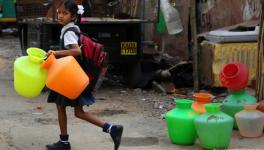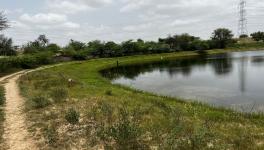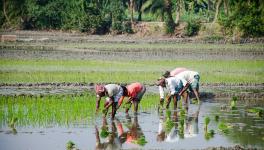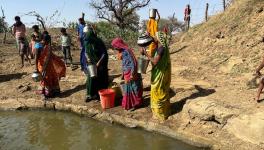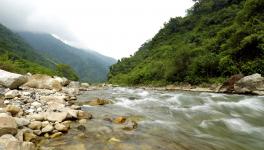In Maha Tribal Hamlet, Women Forced to Take Risks Daily to Fetch Water
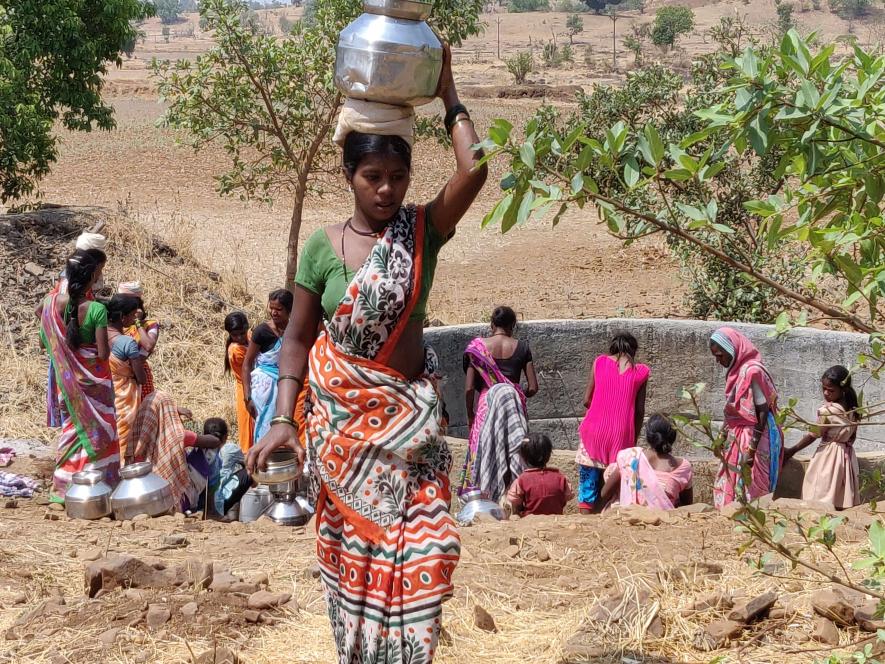
Nashik: Tribal women and kids from Bardechi Wadi in Nashik district have to rappel down to a 60-feet-deep well to fetch water for daily usage, even though the village is in the vicinity of two dams. It takes 5-10 minutes to fill one kalashi (steel pot) and one family needs at least 10 pots each day. Sadly, water that quenches Mumbai’s thirst is flowing in full force in a canal from Vaitarna Dam, which is hardly 2 km away from the hamlet.
Bardechi Wadi is tribal hamlet and part of Taki Deogan that is a group of grampanchayats in Trimbakeshwar taluka of Nashik district. The hamlet comprises about 40 families of Thakur tribals, and the population is around 250.
Vaitarana Dam of 25 TMC capacity and Taki Deogaon Dam of one TMC are within the radius of 3 km of circumference from the hamlet.
However, no measures have been taken to supply water to this hamlet. The hamlet has one water tank, but water tankers are obstructed due to the constructions underway on the way. Hence, the water tanker releases water once in 8-10 days into the only well around the hamlet, which is 400-500 metre away. As water level of the well is low, water pumps do not work.
After the well is filled, women suspend small plastic pots tied to the ropes and pull them up to fill their big pots kept outside. But within two days, water level becomes so low that they are forced to climb down the well. The villagers have fixed two ropes tied to a tree with the other ends in the well. Women and girls rappel down in the well with the help of the ropes to fetch water.
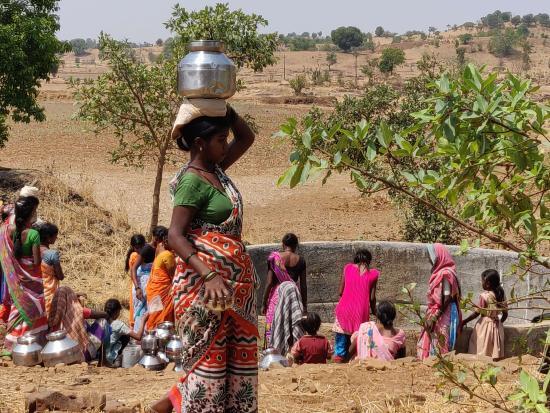
Puja Paradhi, a lanky standard VIII girl, has become popular in the hamlet as she has become an expert in climbing down the well. She feels it is a kind of adventure and enjoys it. But for Sita Mengale, a woman in her 20s, this is a nightmare. Sita also climbs down, but she says that her legs and hands shake as she rappels down.
As the two of them, get to the water level, four-five women suspend ropes tied to small plastic pots into the well. Puja and Sita fill these pots with glasses, as water level is almost touching the ground. Both of them have to take the water out from small ditches in the well to fill the plastic pots.
Also read: 11 Villages in Marathwada Decide to Beat up Vote Seekers
Sita said, “It takes two minutes to fill one plastic pot. I do not count how many such pots I fill daily. We stay in the well for at least two hours in morning, afternoon and evening. Nowadays, other women too have started daring to get down in the well. But still, I spent at least three hours a day here.”
Yashada Mengale, a 22-year-old woman, who is also five months into her pregnancy, sat near the well, waiting for her turn to fill her big kalashi. She was so skinny that one would not realise that she is pregnant until she explains. She had to fill two pots and carry them on her head to her house, which is 500 metre away. She would have tp walk this distance in the scorching heat of 42 degree Celsius temperature. She does three such rounds – in the morning, afternoon and evening.
She said, “I have to do all the domestic chores, and without water, everything gets stalled. If I don’t serve food to my husband and in-laws, I will have to hear their curses.”
Lila Paradhi, another villager, told NewsClick, “Ten-fifteen plastic pots fill one steel pot. So, that much time we have to spend at the well.”
Men from this village refuse to help women in this job. A villager, Bhagvan Pardhi, said, “We don’t have the habit to carry pots on our heads. That is women’s job. We also work at the farms, so, we don’t get time.”
Men and young boys could be seen sitting idle while women carried the water pots.
Balu Mangate, a gramsevak of Taki Deogoan, said, “We face this problem every summer. We must have sent many proposals to the gram panchayat, have met the collector. But nobody is keen to solve this problem.”
Bhagwan Madhe, a social activist from Shramjivi Sanghatana, told NewsClick, “One can see the canal carrying water to Mumbai even now in summer in the drought year. There is no serious water scarcity problem. Vaitarna river has water, and farming is still on. But government’s apathy to lay a three-km pipeline to supply water here make lives of women so risk-prone. Water in another dam Taki Deogaon is kept reserved and we don’t know why.”
Also read: Elections 2019: No Roads, Electricity or Health Centres; Why Vote, Ask Tribals from Nashik
Get the latest reports & analysis with people's perspective on Protests, movements & deep analytical videos, discussions of the current affairs in your Telegram app. Subscribe to NewsClick's Telegram channel & get Real-Time updates on stories, as they get published on our website.









